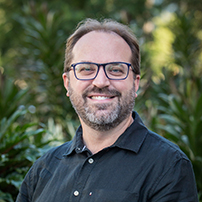How Does The Ethical Fashion Report Come To Be Each Year?
It’s a question we’re often asked. The Ethical Fashion Report is researched using a comprehensive methodology that has been developed, refined, and strengthened over the last eight years. We provide a detailed outline of the methodology, including the full survey we sent to companies, question rationale and validation criteria in the Technical Appendix to the full Ethical Fashion Report. This is published alongside the report and is freely available on our website to anyone interested in our process.
At the heart of this report is—and has always been—an unwavering commitment to seeing the fashion industry change in ways that mean every person and community touched by its supply chains will experience dignity and the opportunity to flourish. As a Christian organisation, we believe this is what God intends and it is our reason for existence.
We have no other agenda in the Ethical Fashion Report.
We know that the gap between where we are today in the fashion industry and where we need to be in order to deliver dignity and flourishing to people and planet alike, remains very wide indeed. It’s a reality we point to constantly and highlight again in the 2021 Ethical Fashion Report.
Acknowledging & Celebrating All Milestones
Yet, we also celebrate the companies that have made this their core purpose and are proud to point to the examples they provide of what is possible.
We also believe that if we are to really shift the needle on the way the industry works, change has to be systemic, involve the whole industry and be accessible for everyday Australians to play a role.
So we do identify and celebrate those brands that are starting to do this work; they have not reached perfection, but they have moved beyond talk and can point to evidence of the tangible measures they are taking.
Of course, taking a mountain of complex and nuanced data and turning it into useable information for consumers has it challenges and we acknowledge this. But someone picking up the Ethical Fashion Report can have confidence that the research process that has informed the grades they see is rigorous and evidence based.
The grades are a meaningful gauge of the brands that are making the greatest progress relative to their peers, but they’re not, and never have been, an indication of perfection. As an individual’s engagement and understanding grows, we enthusiastically encourage them to download and read the whole Ethical Fashion Report to dig into some of this complexity. That’s why we provide tools on our website to enable advocacy directly to brands asking them to keep doing more to improve.
What Has Improved Over The Years?
Importantly, we have seen that this approach has driven change. In this year’s report, we highlight some of those shifts, for example:
- brands that are actively tracing where their raw materials come from have increased from 17 per cent in 2013 to 69 per cent today;
- 72 per cent of brands have grievance mechanisms in the final stage of their production compared to 49 per cent when we started;
- 43 companies have committed to working toward a living wage up from 24 just two years ago.
We have also been part of and have learnt from research in Australia and overseas that has shown some of this progress. This includes studies that have shown the quality of labour rights due diligence in factories that supply to Australian/NZ brands is on average stronger than those that supply exclusively to North American or European brands. And we’ve seen emerging evidence that garment companies’ modern slavery reporting is on the whole stronger than other similar industries.
These are reflections of the efforts the industry has made, and we particularly acknowledge the significant work and internal advocacy of many of the individuals and teams in brands who have led this forward. Thank you. We also celebrate the role the Ethical Fashion Report has had in setting an agenda and providing accountability for these changes.
Where To From Here?
Of course, none of this means we can rest where we are now. Our approach is always evolving in consultation with the industry, leading researchers in the field, and the expectations of consumers. We will be actively engaging with all of these stakeholders over the weeks and months ahead.
Our commitment in all of our engagement—whether in private conversations or in public forum—is one of openness and respect. Until every garment worker experiences economic dignity and we are living sustainably on our planet, we must keep learning, adapting, and growing in what we are doing. We may not all agree on each issue, but we in the advocacy team at Baptist World Aid will listen to the feedback we receive and take forward all that helps move us closer to the goal of systemic change in this industry. And we are grateful for all those who have joined us on this journey.

